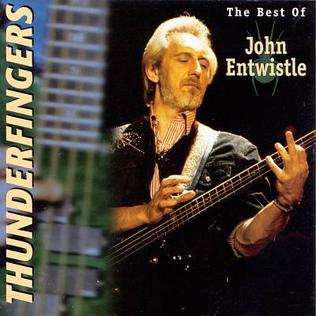 While the band had proved they could evolve with the times, with Hot Space Queen seemed to go completely off the rails. There’s no mistaking that voice for Freddie Mercury, but especially with the dearth of guitars, much of the album sounds little like the Queen everybody (thought they) knew.
While the band had proved they could evolve with the times, with Hot Space Queen seemed to go completely off the rails. There’s no mistaking that voice for Freddie Mercury, but especially with the dearth of guitars, much of the album sounds little like the Queen everybody (thought they) knew. The band that boldly eschewed synthesizers now embraced keyboards and drum machines, and with Arif Mardin-arranged horns, “Staying Power” was an ironic title in a country that rejected disco. “Dancer” is a slower strut that improves whenever the guitars come in to crunch, especially that nutty solo, but most of it is burbling funk. “Back Chat” sounds even more like Chic than “Another One Bites The Dust” did, and the canned drums, which now sound so generic from countless records, do not help at all. We will admit that the tune isn’t that far off from the type of dance songs the Rolling Stones had put out recently. “Body Language” was the first single (and video) released for the album, almost all Freddie and synths; the reaction of many suburban kids was that it sounded “kinda gay,” which was Freddie’s point, of course. Then there’s Roger Taylor’s “Action This Day”, which has an incessantly pounding beat, subtle guitars, but rhythm piano for a trashy sound. An unexpected neo-classical flourish heralds a surprising saxophone solo.
Side two is a major improvement. “Put Out The Fire” finally, mercifully, has some Brian May riffing for a potential stadium anthem. What’s not immediately obvious is the song’s anti-gun content, culminating in cries of “shoot!”, which set up “Life Is Real”, subtitled “Song For Lennon”, and written in memory of the fallen Beatle. The somber mood is fleeting, as Roger’s pro-love “Calling All Girls” uses prominent 12-string acoustic guitars but still sounds robotic; the video doubled down on that feeling. The sentiment continues on “Las Palabras De Amor”, helpfully subtitled “The Words Of Love” for those who don’t speak Spanish, driven by swirling arpeggiated keyboards, real drums, and gang harmonies. The lazily jazzy “Cool Cat” now sounds like a template for George Michael, particularly in the falsetto vocal approach. A very trying album closes with “Under Pressure”, the untouchable duet with David Bowie that had already appeared on the American Greatest Hits, but not elsewhere.
Hot Space was not a hit in America, and was seen as something of a stumble around the world. Some of the songs would improve onstage, but it would take some time for the band to recover commercially. The U.S. took even longer to come around, by which time it was too late. (The first CD reissue included a new remix of “Body Language” with guitar and piano added, which was not included in the expanded CD two decades later in favor of three live tracks from 1982, the remixed single version of “Back Chat”, and the vintage B-side “Soul Brother”.)
Queen Hot Space (1982)—2½
1991 Hollywood reissue: same as 1982, plus 1 extra track
2011 remaster: same as 1982, plus 5 extra tracks






